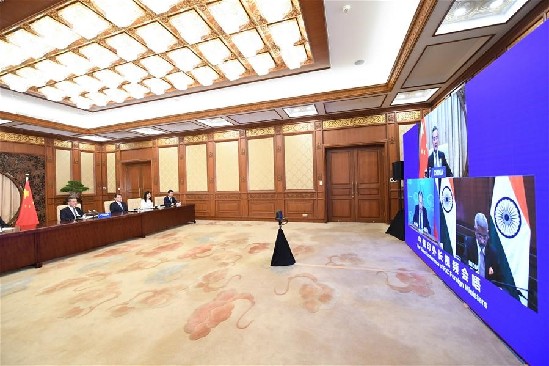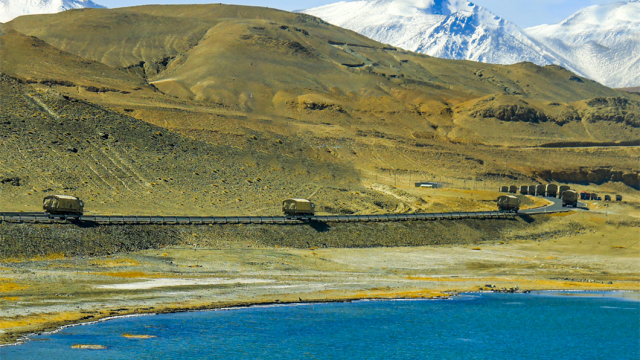
By Zhang JiaDong
The Galwan Valley incident caused heavy casualties and brought tremendous pressure again to China-India relations. This incident was inevitable and predictable to some extent. As two rising powers in the world, the comprehensive national power of China and India has risen, their border control and management capabilities have gradually increased, and national senses of honor and nationalist sentiment within their territories have also continued to rise in China and India. These all have put increasing pressure on the disputed line of actual control (LAC).
Overall, this incident is a major event in China-India relations, but it is only a minor episode. Poor handling will lead to a long-term decline in China-India relations. However, if handled properly, it will bring new opportunities to the building of the control mechanism between China and India in the border area instead, as well as to the broader China-India relations. Historically, a crisis has often provided opportunities for development and cooperation, and ultimately escalated the cooperation mechanism between China and India.
The biggest problem in China-India relations is the rapidly expanding gap between the development level of China-India relations and the strategic importance of such relations. Since the beginning of the 21st century, the international status of China and India has rapidly improved, and the strategic significance of China-India relations to the two countries and the international community has quickly increased. However, the progress of China-India relations has not been ideal. This has led to a serious mismatch between the importance of the China-India relationship and its current development. As a relatively weak party in this relationship, India has actively adopted some measures at the major power relations, regional and bilateral levels.
At the level of major power relations, India has continuously strengthened its relations with the US, Japan, and other countries, and consolidated its strategic capabilities to check and balance China. India and the US have signed a series of cooperation agreements, ranging from civilian nuclear energy cooperation to military cooperation. This has not only enhanced India's military strength but also constantly changed the nature of India-US relations.
At the regional level, India is actively taking steps to compete with China for leadership in South Asia and the North Indian Ocean. China proposed the Belt and Road Initiative (B&R), and India has the Asia-Africa Growth Corridor(AAGC) - a collaborative vision between India and Japan to promote development, connectivity, and cooperation between Africa and Asia as part of a “liberal and value-based order.”. China built a port in southern Sri Lanka, and then India built another port in northern Sri Lanka. China appeared in Gwadar Port in Pakistan, and then India appeared in Chabahar Port in Iran to the west.
At the bilateral level, India has continuously strengthened its frontier frictions under the no-war expectation. One the one hand, it aims to cope with the rising nationalist sentiment in the country, and at the same time, to show a sense of presence in front of China. From this perspective, India has fallen into an infinite loop of "tentative provocation-confrontation-negotiation" with China on the border issue. India aims to increase the frequency of friction at the border so that China can neither fight nor tolerate harassment. Through such provocations, India expects that it will resolve the border dispute between the two countries based on India's conditions.
However, China's strategic judgment on India has not changed significantly. India is a world power, but it is also a developing country and China's neighbor. China is willing to accept India's status as a major power within a certain sphere, and recognizes the common interests with India in some fields. But the two premises of China's policy toward India have also not changed significantly: first, India does not join any anti-China alliance system; second, India does not undermine the interactive norms and habits formed by the two sides in the border area since 1993. But now, these two premises are continually being eroded, and China's policy toward India is also facing increasing adjustment pressure.
The border dispute is a sensitive issue, but it is not the core of China-India relations. China and India need to identify new dynamics to do no harm to the interests of both countries.
(The author is a professor at the Center for South Asian Studies affiliated to the Institute of International Studies at Fudan University)









